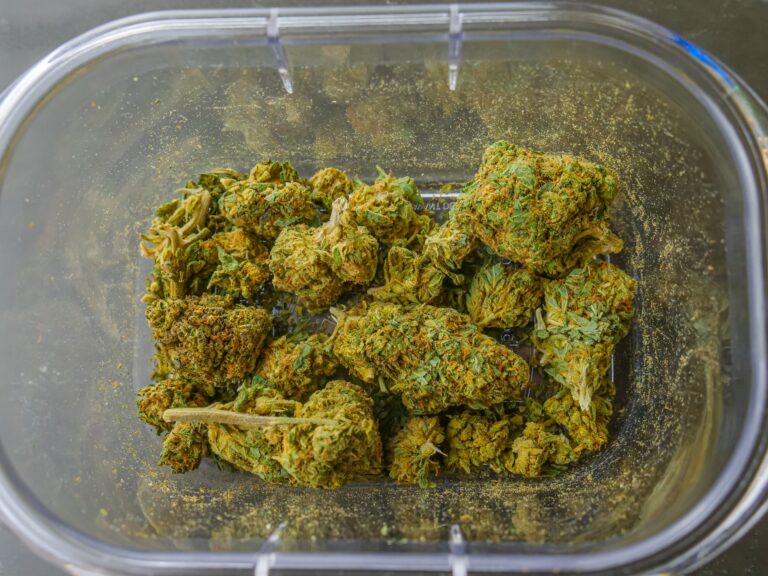What is the legality of cannabis in North Dakota, United States?
As of now, cannabis is not fully legal in North Dakota, United States. Recreational marijuana use is illegal, and medical marijuana is allowed only under specific conditions. This article will discuss the current laws and penalties surrounding cannabis, public opinion, and other important information for residents and visitors to North Dakota.
What is the public opinion on cannabis in North Dakota, United States?
Public opinion on cannabis in North Dakota has shifted in recent years. In 2016, North Dakota residents voted to legalize medical marijuana, indicating a change in attitudes towards cannabis use. However, in 2018, a ballot measure to legalize recreational marijuana was defeated. Although there is growing support for the legalization of cannabis, it remains a contentious issue in the state.
What are the laws and penalties for cannabis in North Dakota, United States?
Recreational marijuana use is illegal in North Dakota. Possession of small amounts of cannabis can lead to serious penalties, including fines and imprisonment. Here are some of the penalties for cannabis possession:
- Less than 0.5 ounces (14 grams): Class B misdemeanor, punishable by up to 30 days in jail and a $1,500 fine.
- Between 0.5 ounces (14 grams) and 1 ounce (28 grams): Class A misdemeanor, punishable by up to 1 year in jail and a $3,000 fine.
- Between 1 ounce (28 grams) and 1 pound (454 grams): Class C felony, punishable by up to 5 years in prison and a $10,000 fine.
- More than 1 pound (454 grams): Class B felony, punishable by up to 10 years in prison and a $20,000 fine.
Additionally, selling, distributing, or cultivating marijuana is also illegal and can lead to severe penalties, including lengthy prison sentences and large fines.
What is the terminology for cannabis in North Dakota, United States?
Some common terms used for cannabis in North Dakota include marijuana, weed, pot, and ganja. Medical cannabis is often referred to as medical marijuana or MMJ. CBD is short for cannabidiol, a non-psychoactive compound found in cannabis plants.
What is the legal status of CBD in North Dakota, United States?
CBD derived from industrial hemp is legal in North Dakota, as long as it contains less than 0.3% THC (the psychoactive compound in cannabis). The state follows the federal 2018 Farm Bill, which legalized industrial hemp production and removed hemp-derived CBD from the list of controlled substances.
Is medical cannabis use allowed in North Dakota, United States?
Yes, medical cannabis use is allowed in North Dakota for patients with qualifying conditions. The North Dakota Compassionate Care Act, passed in 2016, allows patients with specific medical conditions to obtain and use medical marijuana with a doctor’s recommendation. Some qualifying conditions include cancer, HIV/AIDS, epilepsy, glaucoma, and multiple sclerosis. Patients must apply for a Medical Marijuana Card through the North Dakota Department of Health.
What are the cannabis cultivation regulations in North Dakota, United States?
Cultivating cannabis for personal use is illegal in North Dakota, even for medical marijuana patients. Only licensed facilities are allowed to grow cannabis for medical use. Unauthorized cultivation of marijuana can result in severe penalties, including fines and imprisonment.
What are some helpful links, government laws, and resources about cannabis in North Dakota, United States?
- North Dakota Department of Health – Medical Marijuana Program
- North Dakota Century Code – Title 19: Crimes and Punishments, Chapter 03.1: Uniform Controlled Substances Act
- North Dakota Medical Marijuana Legalization, Initiated Statutory Measure 5 (2016)
- North Dakota Marijuana Legalization and Automatic Expungement Initiative (2018)
In conclusion, while medical cannabis use is legal in North Dakota under specific conditions, recreational use remains illegal. Those who wish to use medical marijuana must apply for a Medical Marijuana Card and follow the state’s regulations. As public opinion on cannabis continues to shift, it is important to stay informed about the latest laws and policies in North Dakota.
